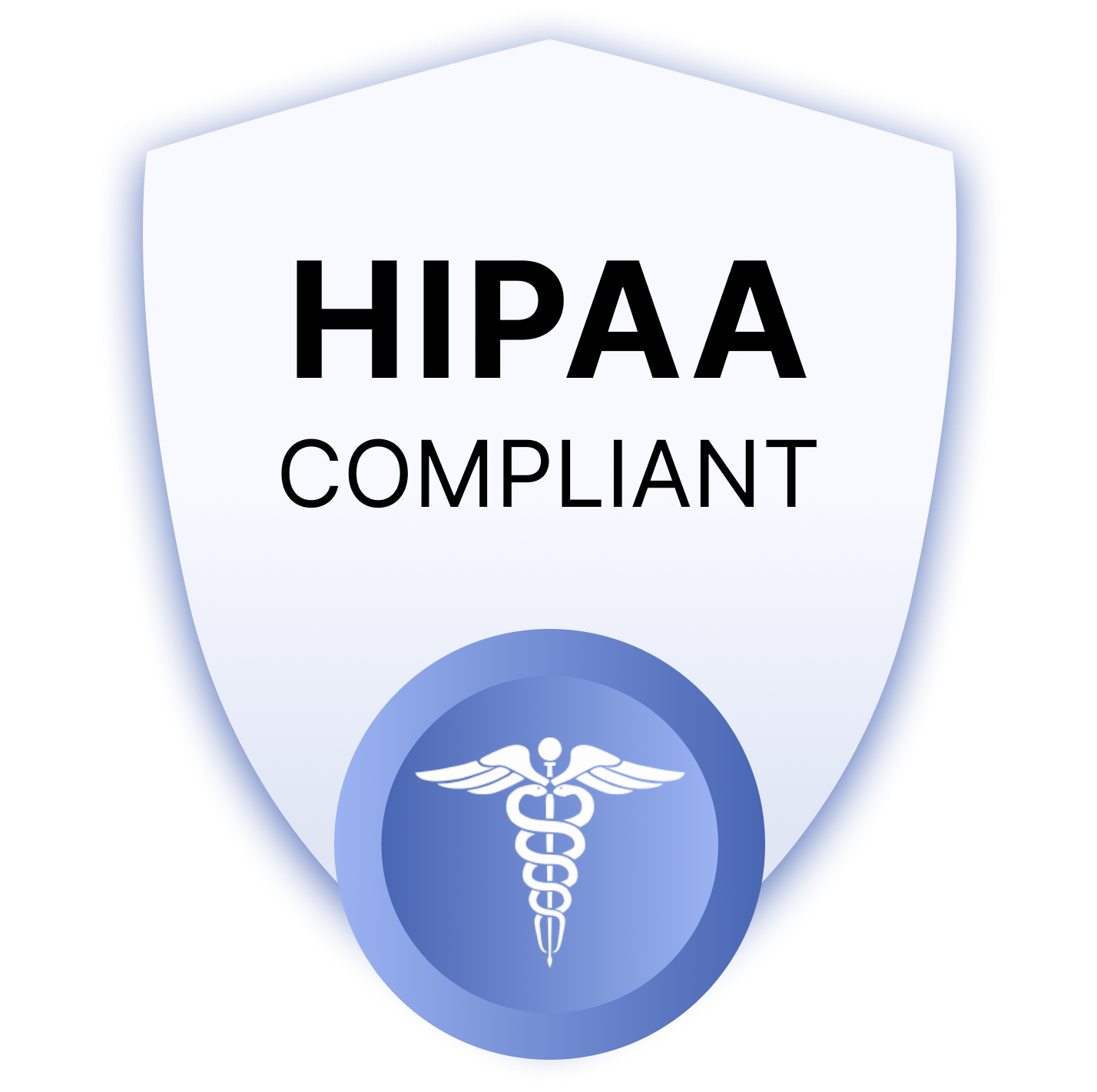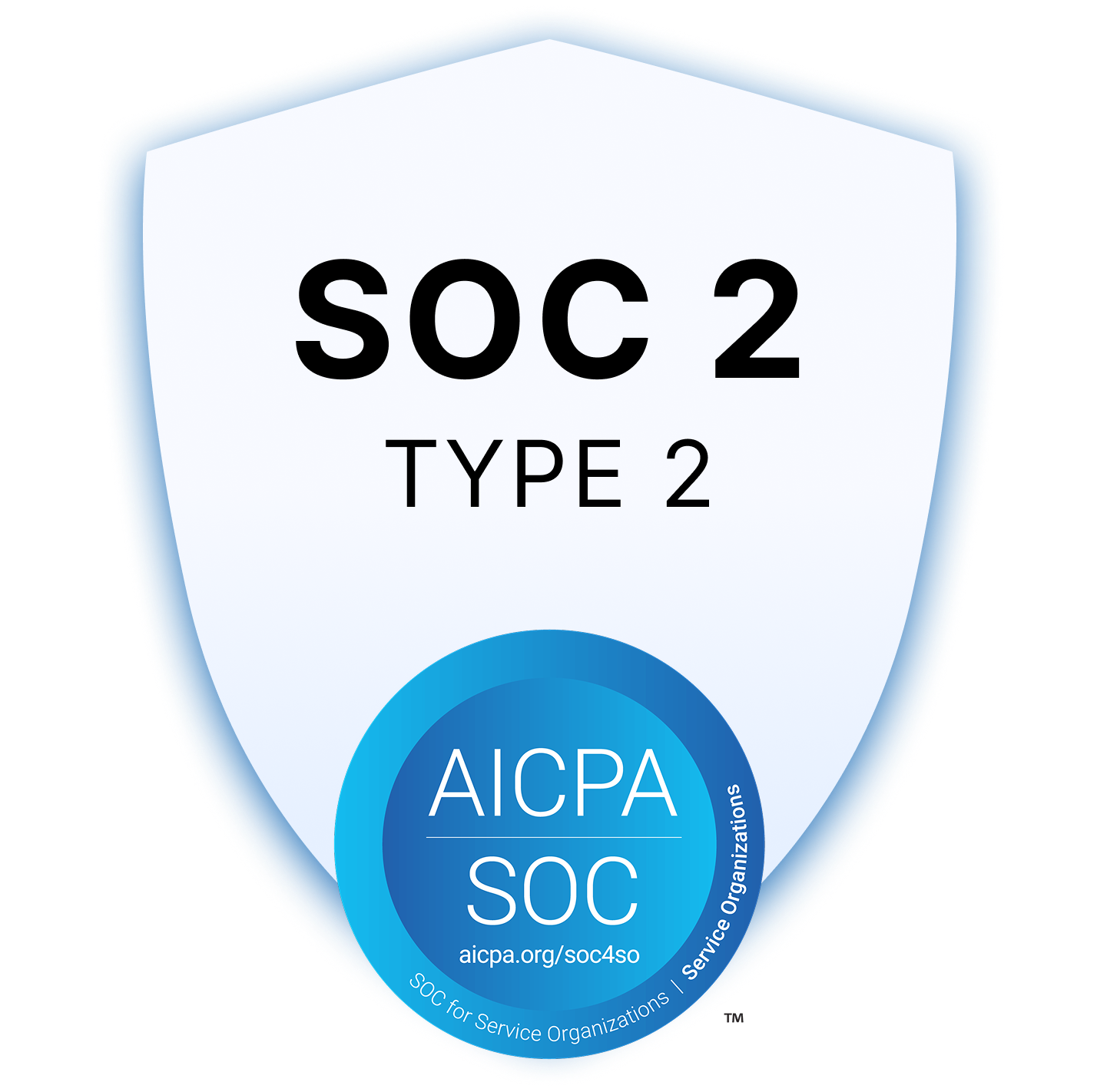
HIPAA Compliance
9 mins
What is HIPAA Compliance? Essential Guide to Best Practices (2025)
Summary
Your Competitors Are Embracing AI – Are You Falling Behind?

Navigating the complexities of HIPAA compliance can be a daunting task for healthcare organizations. The Health Insurance Portability and Accountability Act (HIPAA) is a crucial piece of legislation in the United States that aims to protect the confidentiality and security of patient health information.
As technology continues to evolve, staying up-to-date with best practices for HIPAA compliance is essential for organizations that handle sensitive health information.
This guide is designed to help healthcare providers, administrators, and the wider industry stay informed about the key aspects of HIPAA compliance and will explore essential topics, including the Privacy Rule, Security Rule, and breach notification requirements, while focusing on the most recent trends and insights.
What Is HIPAA Compliance?
HIPAA Compliance Definition
HIPAA compliance refers to meeting the requirements established by the Health Insurance Portability and Accountability Act (HIPAA) of 1996. This federal law aims to protect sensitive patient health information (PHI) while allowing the flow of data between authorized healthcare entities, ultimately facilitating better patient care. By adhering to HIPAA guidelines, healthcare providers, insurers, and other related organizations demonstrate a commitment to respecting patient privacy and maintaining the security of health information.
In general, HIPAA compliance is all about preserving the confidentiality, integrity, and availability of PHI, be it on paper or in an electronic format. To achieve compliance, HIPAA-covered entities should implement appropriate administrative, physical, and technical safeguards to prevent any unauthorized access, disclosure, alteration, or destruction of PHI.
What Is The HIPAA Law?
The HIPAA law is a comprehensive legislative framework designed to address various aspects of healthcare administration, including data privacy and security. HIPAA consists of several key components, each with its own purpose and requirements. The main components include:
- Privacy Rule: This rule governs how PHI is collected, used, and disclosed by covered entities. It also sets forth individuals' rights concerning their own health information, including the right to access and amend it.
- Security Rule: Primarily aimed at electronic protected health information (ePHI), this rule requires covered entities to maintain the confidentiality, integrity, and availability of ePHI by implementing appropriate safeguards. These cover administrative, physical, and technical aspects of information security.
- Breach Notification Rule: Defines the steps that covered entities and their business associates must take if there is a breach in PHI. This might involve notifying affected individuals, the Department of Health and Human Services (HHS), and, in some cases, the media.
By adhering to HIPAA compliance guidelines, healthcare organizations and professionals not only protect patient privacy but also maintain trust in the industry. The key to achieving and maintaining HIPAA compliant status is staying informed, implementing best practices, and continually monitoring security measures to ensure that the sensitive health information remains protected.
Who Must Comply With HIPAA?
HIPAA compliance is essential for a variety of organizations and individuals working within the healthcare industry. Understanding who must comply with HIPAA regulations ensures the protection of sensitive patient information and maintains the trust of patients, providers, and other stakeholders. The following entities have a responsibility to comply with HIPAA regulations:
Covered Entities (CEs): Covered entities are essentially healthcare providers, health plans, and healthcare clearinghouses. This group includes hospitals, physicians, dental practices, pharmacies, health insurance companies, and any organization involved in the electronic submission of health-related transactions. These entities are directly accountable for maintaining the privacy and security of protected health information (PHI).
Business Associates (BAs): Business associates are any individuals or organizations performing services on behalf of covered entities. These services typically involve the use, disclosure, or exchange of PHI. Examples of business associates include claims processing companies, billing agencies, legal firms, medical transcription services, and IT consultants.
As stipulated in the HIPAA regulations, both CEs and BAs must adhere to the security and privacy requirements listed under the HIPAA Privacy and Security Rules.
To maintain compliance, these entities must follow certain best practices and guidelines, such as conducting regular risk assessments, implementing appropriate safeguards to protect PHI, and ensuring confidentiality and integrity of PHI when transmitted electronically. Furthermore, organizations must provide regular training to employees and establish clear policies and procedures for handling, accessing, and disclosing PHI.
Understanding and addressing HIPAA compliance requirements is vital for all covered entities and business associates within the healthcare industry. Adhering to these regulations not only protects sensitive patient data, but also helps maintain trust and confidence among healthcare providers and patients alike.
Why Is It Important To Comply With HIPAA Standards?
Complying with HIPAA standards is crucial for various reasons, primarily centered around protecting patient privacy and ensuring the security of sensitive health information. By adhering to these guidelines, healthcare organizations can establish trust with their patients and maintain a positive reputation in the industry.
One of the key components of HIPAA compliance is the Privacy Rule, which sets standards for the use and disclosure of individuals' protected health information (PHI). This rule establishes the requirements for safeguarding patients' privacy and guarantees their rights to control their PHI. Failure to comply can lead to severe financial penalties, reputational damage, and loss of patient trust.
The Security Rule, another fundamental aspect of HIPAA compliance, focuses on protecting electronic protected health information (ePHI) from potential threats. It outlines the necessary administrative, physical, and technical safeguards that healthcare entities must implement to ensure the confidentiality, integrity, and availability of ePHI. By meeting these requirements, organizations can minimize the risk of security breaches and maintain the confidence of their patients.
In the event of a security breach, the Breach Notification Rule requires healthcare providers, health plans, and their business associates to notify affected individuals, the Department of Health and Human Services (HHS), and the media in certain cases. Compliance with this rule helps healthcare entities to manage breaches effectively and mitigate the potential negative consequences for both the organization and the affected patients.
Ensuring HIPAA compliance is not only about avoiding heavy financial penalties and loss of reputation; it also upholds patient rights. Patients have the right to access their health information, request corrections, and obtain an accounting of disclosures of their PHI. Adhering to HIPAA compliance guidelines allows healthcare providers to demonstrate their commitment to preserving these rights and maintaining a strong bond with their patients.
7 Best Practices For Compliance With HIPAA
a) Designating A Compliance Officer And Committee
It is essential to appoint a Compliance Officer and establish a committee responsible for overseeing HIPAA compliance. The Compliance Officer ensures that the organization meets all required privacy and security standards while working closely with a dedicated committee to create, revise, and enforce policies, procedures, and risk management strategies.
b) Implementing Written Policies And Procedures
Developing clear, written policies and procedures is crucial for maintaining HIPAA compliance. These documents should address administrative safeguards, risk assessment, and risk management processes. Regularly review policies and update them as necessary to reflect changes in technology, regulations, and business practices.
c) Conducting Effective Training And Education
Ensuring staff is properly trained and educated about HIPAA requirements and the organization's policies is essential. Provide regular training for employees at all levels, along with updates and refreshers as needed. Training should cover privacy, security, and risk management practices, making it easier for staff to adhere to the established guidelines.
d) Developing Effective Lines Of Communication
Open communication between management, the Compliance Officer, and employees is vital in maintaining HIPAA compliance. Establishing clear communication channels enables organizations to address any concerns, incidents, or breaches in a timely manner. This includes reporting systems for potential violations and anonymous avenues for employees to raise concerns without fear of retaliation.
e) Conducting Internal Monitoring And Auditing
Continuous internal monitoring and auditing are essential components of a successful HIPAA compliance program. Regularly check for adherence to policies, procedures, and regulatory requirements. Use audits to identify areas of potential risk, and implement corrective measures to address identified issues promptly.
f) Enforcing Standards
Enforcement of standards is crucial to maintaining HIPAA compliance. Develop disciplinary policies and procedures to hold employees accountable for any violations. These policies should outline consequences for non-compliance and ensure a consistent, fair approach to enforcement.
g) Responding Promptly To Detected Problems And Undertaking Corrective Action
In the event of a detected problem or potential breach, a swift response is critical. The Compliance Officer and committee should initiate a thorough investigation, evaluate the incident, and take appropriate corrective action. This may include implementing additional safeguards, updating policies and procedures, providing additional training, or revising risk management strategies.
By following these seven best practices, organizations can confidently maintain HIPAA compliance and protect the privacy and security of their clients' personal health information.
Conclusion
In summary, HIPAA compliance is critical for healthcare providers and other covered entities to maintain patients' trust and protect sensitive information. By performing regular risk assessments, implementing privacy and security protections, minimizing administrative burden, and adopting best practices, organizations can confidently comply with HIPAA regulations.

FAQs
What Is Protected Health Information (PHI)?
Protected Health Information (PHI) refers to any individually identifiable health information that is collected, stored, transmitted, or maintained by a covered entity or business associate. This includes demographic information like names, addresses, and social security numbers, as well as medical records, test results, and treatment plans. To maintain HIPAA compliance, all PHI must be kept confidential and secure.
What Is HIPAA And HITECH Compliance?
The Health Insurance Portability and Accountability Act (HIPAA) is a federal law that establishes national standards for the protection of PHI. The Health Information Technology for Economic and Clinical Health (HITECH) Act complements HIPAA by promoting the adoption of electronic health records and providing guidelines for their secure use. Together, these laws mandate that healthcare providers, health plans, and other covered entities implement measures to safeguard PHI and maintain robust security practices.
What Is Considered A HIPAA Violation?
A HIPAA violation occurs when a covered entity or business associate fails to comply with the HIPAA Privacy Rule, Security Rule, or Breach Notification Rule. Common violations include:
- Unauthorized access or disclosure of PHI
- Failure to perform a risk assessment or implement security measures
- Inadequate employee training on HIPAA regulations
- Lack of patient access to their medical records
- Not adhering to the minimum necessary standard
- Non-compliance with breach notification rules
What Are The Penalties For HIPAA Violations?
The Department of Health and Human Services (HHS) can impose penalties on covered entities and business associates that violate HIPAA rules. Penalties are based on the severity of the violation and can range from $100 to $1.5 million per violation, depending on the level of negligence. They may also include:
- Corrective action plans
- Criminal charges
- Civil actions by patients or other affected parties
What Is HIPAA Compliance Certification?
HIPAA compliance certification is a voluntary process through which organizations demonstrate their adherence to HIPAA rules and regulations by undergoing a third-party audit. While certification is not required by HHS, it can serve as evidence of an organization's commitment to maintaining the confidentiality, integrity, and security of PHI. Additionally, certification can help mitigate the risk of violations and potential penalties by identifying and addressing compliance gaps.
Here's how to automate everything from intake to billing. Faster care, fewer errors, no developers needed.
Related Articles












